Life
Sign up for our newsletter
We summarize the week's scientific breakthroughs every Thursday.
-
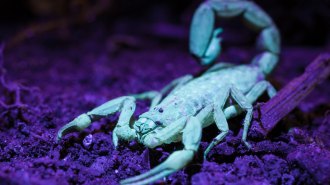 Life
LifeBackyard explorers discovered 15 new examples of glowing life
New finds in the Finding Fluorescence site include a Japanese beetle with a glowing blue mouth and a mushroom that gleamed bright red under its cap.
By Meghan Rosen -
 Animals
AnimalsThis marine biologist discovered a unique blue whale population in Sri Lanka
In addition to studying the world’s only nonmigratory blue whales, marine biologist Asha de Vos seeks to change her compatriots’ attitudes toward the ocean.
By Sandy Ong -
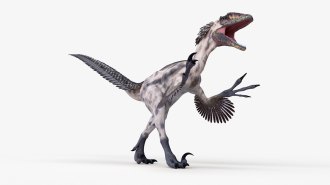 Paleontology
Paleontology‘Uncovering Dinosaur Behavior’ unearths paleontology’s biases
Paleontologist David Hone’s latest book fleshes out our understanding of dinosaur behavior.
-
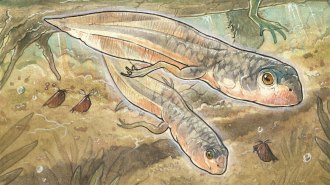 Life
LifeThe oldest known fossil tadpole was a big baby
Fossils of the ancient frog Notobatrachus degiustoi push the known tadpole timeline back more than 30 million years.
By Jake Buehler -
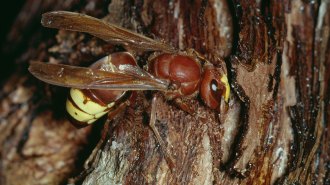 Animals
AnimalsThese hornets may be the alcohol-detox champs of the animal world
Vespa orientalis fed an 80-percent-ethanol brew still did hornet tasks and had normal life spans. This trick may be an adaptation to gut-dwelling yeast.
By Susan Milius -
 Animals
AnimalsGiant rats could soon help sniff out illegally smuggled goods
African giant pouched rats can detect landmines and diseases. Now some have been trained to sense elephant ivory, pangolin scales and more.
-
 Animals
AnimalsA common kitchen tool could help koala conservation
A simple device sucks koala DNA out of the air, making it easier for conservationists to detect the elusive marsupials.
-
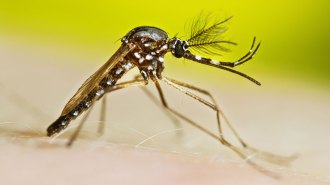 Health & Medicine
Health & MedicineMale mosquitoes sometimes suck, too
Blood isn’t actually toxic to all male mosquitos. In at least one virus-carrying species, it may even help them live longer.
-
 Science & Society
Science & SocietyThe U.S. empire was built on bird dung
A mid-1850s act let the United States seize islands rich in bird guano. Those strategic outposts fueled the U.S. rise to power, a researcher says.
By Sujata Gupta -
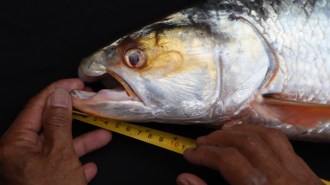 Animals
AnimalsThe ‘Mekong ghost’ megafish has resurfaced after an extinction scare
Rediscovery of giant salmon carp in Cambodia sparks hope for the rare fish’s survival and efforts to conserve one of the greatest diversity hot spots.
-
 Life
LifeHow insects can help catch rhino poachers
A new study looks at which insects can be used as biological clocks to determine when a rhino was killed.
By Jude Coleman -
 Animals
AnimalsPolar bears are being exposed to more pathogens as the climate warms
Polar bears have been exposed to more viruses, bacteria and parasites in recent decades, a new study shows, possibly acquiring the germs in their diet.
By Jake Buehler